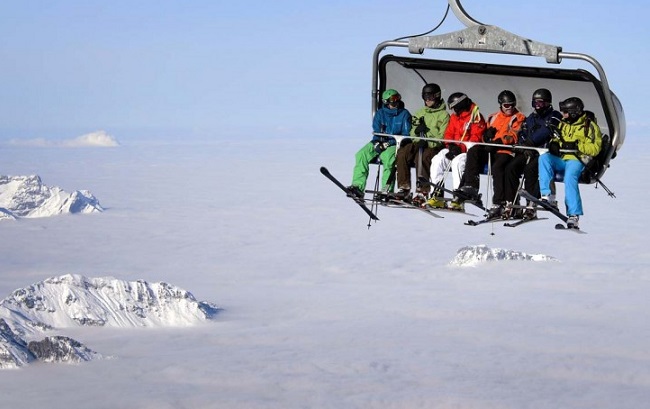Swiss ski resorts open the door to Chinese tourists invasion

Iron ore prices are retreating again and the overall Chinese economy is growing less quickly, but one sector is skyrocketing: outbound tourism. The United Nations World Tourism Organisation preliminary 2016 scorecard has Chinese spending $344 billion as foreign tourists, a jump of 12 per cent in local currencies and more than double the splurge of the next biggest spenders, Americans.
While travelers from China have grown to be Switzerland’s fifth largest market, with a record 1.52 million overnights in 2015, much of that is low-yield tour groups series taking the traditional route of Italy-Switzerland-France, and largely benefiting Swiss destinations such as Lucerne and Interlaken.
Sales of the Swiss Travel Pass, which gives visitors unlimited travel on rail, bus, boat and tram in the Swiss Travel System network, rose 4.7 per cent last year. Other data, from Swiss Quality Hotels, which represents 60 properties in 40 locations throughout Switzerland, show a 144.5 per cent jump in the number of individual travelers from China in the first two months of 2017 compared with the same period in 2016.
Last-minute bookings were surging. About 12 per cent of their bookings were done on the same day of arrival; 20 per cent were within five days of arrival.
“Moreover, they stayed in average about two overnights per destination. We at Swiss Quality Hotels are observing a shift. Chinese travelers are visiting different regions in Switzerland rather than just ticking off the ‘must see’ landmarks.” said Swiss Quality Hotels director of sales and marketing Amjad Nashashibi.
Switzerland Tourism, the national marketing and sales organization, has partnered with Chinese driver-guide platform HiGuides to train and certify HiGuides in Switzerland to escort guests along the Grand Tour of Switzerland, which whisks clients through the country’s most beautiful regions at their own time, preference and pace.
The development of the winter market is especially crucial. Switzerland Tourism is convinced China will become the world’s largest winter sports market. Present reality also bites: its traditional markets Germany, Italy and France, which have been filling up all the rooms in peak winter season, are all in decline because there’s less money, either due to their weaker economies or the higher Swiss franc.
Zermatt Bergbahnen’s head of markets, Hansjuerg Michel, says data show there are already around 15 million skiers in China. “I am convinced they want to ski in a European resort and even if just every 10, 100 or 1,000 of them decides to visit Europe once, we will already have a nice number of Chinese skiing guests in Europe and hopefully some of them as well in Zermatt,” he says.

